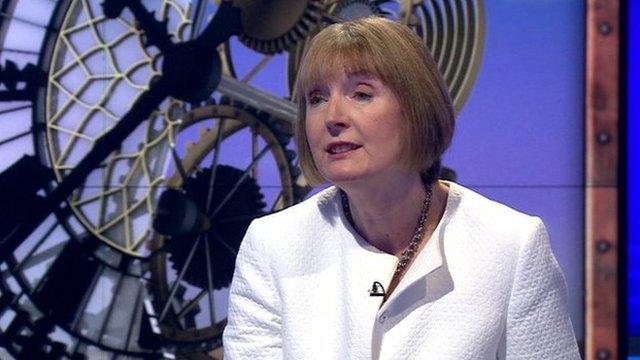Labour leader Harriet Harman faces welfare bill revolt
- Published
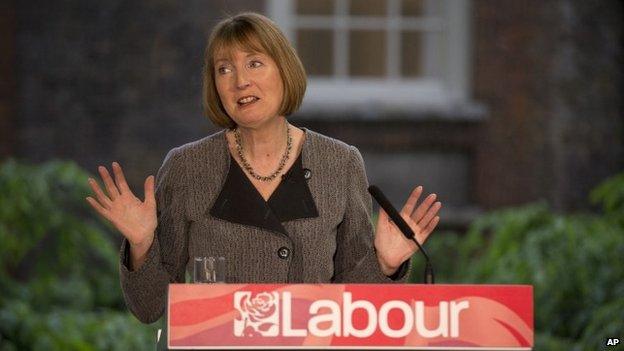
Acting Labour leader Harriet Harman is facing a revolt after ordering the party's MPs not to vote against the government's welfare bill.
Scores of Labour MPs are expected to defy an instruction to abstain on the bill, which includes plans to limit child tax credit to two children.
One MP, John McDonnell, said he would "swim through vomit" to oppose it.
Work Secretary Iain Duncan Smith said Labour was beset by "private arguments and internal fear and loathing".
A series of votes on the Welfare Reform and Work Bill, external in the next half hour is expected to expose Labour divisions over how to respond to benefit changes announced by the government in the Budget.
The Labour leadership originally said it would not oppose restrictions to in-work benefits, including curbs on child and working tax credits, part of £12bn worth of cuts sought by ministers by 2020.
But many in the Labour Party objected, with leadership candidates Andy Burnham, Yvette Cooper and Jeremy Corbyn among those to criticise the plan. Only the fourth candidate, Liz Kendall, supported the move.
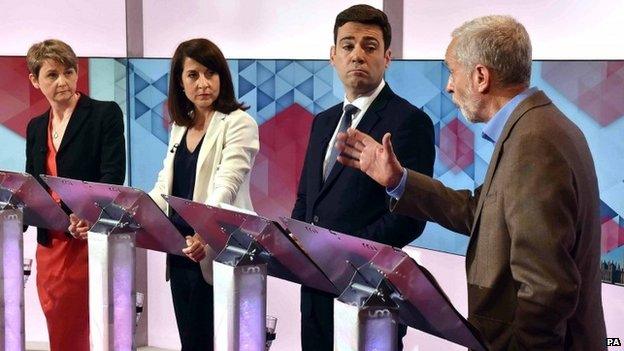
Yvette Cooper, Liz Kendall, Andy Burnham and Jeremy Corbyn clashed over welfare during a Labour leadership hustings on the BBC's Sunday Politics
Ms Harman tried to quell the revolt by tabling an amendment to the Welfare Reform and Work Bill setting out measures Labour backs and those it would change.
It offers support for the cutting household welfare cap to £20,000 a year (£23,000 in London), and moving mortgage support from grants to loans.
Rival amendment
But it opposes the abolition of child poverty targets and changes to Employment and Support Allowance, paid to people who cannot work because of illness or disability. It makes no mention of the child tax credit change.
Ms Harman said if the amendment was rejected, Labour MPs would be expected to abstain in a subsequent vote on the general principles of the bill, leaving the way clear for it to be passed at Second Reading.
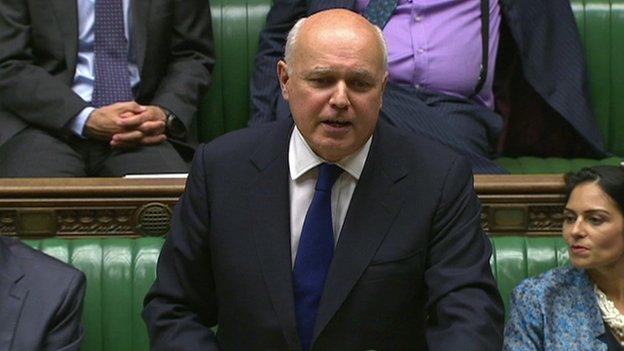
Mr Duncan Smith said welfare would be put on a "sustainable footing".
Leadership contenders Andy Burnham and Liz Kendall are expected to follow Ms Harman's lead but her approach has infuriated a large number of Labour MPs.
More than 60 signed a rival amendment tabled by MP Helen Goodman opposing all the changes but that amendment was not called for a vote by Commons Speaker John Bercow.
Shadow employment minister Stephen Timms said the party would fight "tooth and nail" to oppose those parts of the bill it disagreed with but added that there were things it could support and urged colleagues to remain "united" in Monday's votes.
'Better off'
Speaking as Monday's debate got under way, Mr Duncan Smith said Labour were on the wrong side of public opinion on the issue.
"The bill will ensure the right support and incentives are in place so people are always better off in work rather than trapped on welfare," he said.
"Yes, there are difficult decisions here, but what would be wrong would be to turn a blind eye, as the opposition did for so many years, and not face up to these difficulties.
"The bill puts work first and puts welfare spending on a more sustainable footing for the future while, at the same time, protecting the vulnerable and those most in need."
Writing in the Guardian earlier, external, Chancellor George Osborne said the benefit changes were in line with the views of most Labour voters and were a continuation of policies pursued by former Labour ministers.
The SNP, the Liberal Democrats and the Green Party have all said they will oppose the bill.
In his first Commons speech since becoming Lib Dem leader, Tim Farron said 500,000 people would see their Employment and Support Allowance cut by a third, a move which he said "demonised people with disabilities and mental health conditions".
"It will trap people on welfare, it will not liberate them," he said. "Labelling this bill progressive does not make it progressive".
SNP spokeswoman Hannah Bardell said the party had a mandate from the Scottish people to oppose "cruel" austerity measures.
"SNP MPs wish to work with a progressive alliance across the UK against the Tories' plans to make millions of families poorer," she said. "It is not enough for Labour simply to abstain on the welfare reform bill - they must join us in voting against it."
However, with the government having a majority of 12 in the Commons, the bill is still expected to pass its first parliamentary hurdle.
- Published19 July 2015
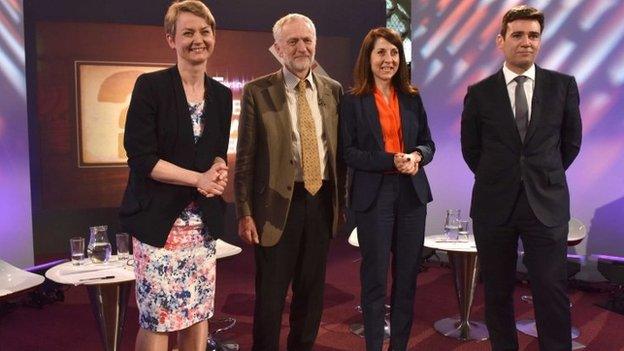
- Published16 July 2015
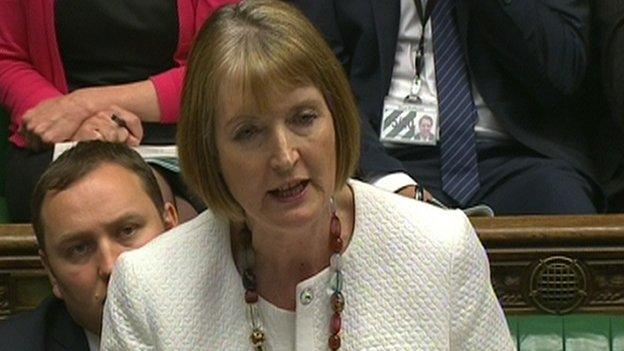
- Published12 July 2015
